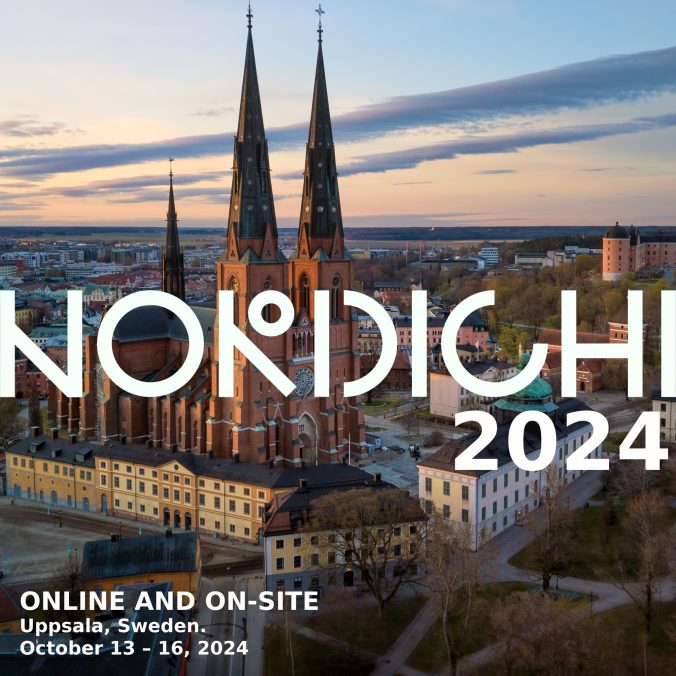Design Methods in Connected Health
We are excited to invite you to our interactive workshop, which will explore and advance design methods for Connected Health applications.
Full day on 13 October 2024, On-site at Ekonomikum, Uppsala University
The Design Methods in Connected Health workshop aims to bring together researchers, practitioners, and designers in eHealth to explore innovative design approaches and philosophies that can enhance the user experience, accessibility, and overall effectiveness of electronic health technologies. Connected health is a multifaceted concept encompassing technology to improve healthcare delivery and patient outcomes. Design methods are processes and tools for creating effective user experiences in technology development.
This workshop will explore diverse design approaches from various fields, including Human-Computer Interaction (HCI), Information Systems (IS), Health Informatics, and Healthcare.
It aims to foster the exchange of ideas and methodologies across these domains. The aims and objectives include
- to explore the diverse design methods in the context of eHealth applications,
- to discuss the impact of design on user engagement, and overall health outcomes,
- to share best practices and case studies of eHealth design implementations,
- to foster collaboration between researchers and practitioners for future advancements in eHealth design, and
- to collaborate on drafting a joint paper for a scientific journal, drawing upon the collective insights gained.
The workshop will explore design methods, analyzing their strengths and weaknesses to determine the most suitable approach for different situations. Through a mix of presentations, group discussions, and collaborative activities like a gallery walk (an activity where participants rotate through stations to evaluate and discuss ideas), participants will engage in a dynamic learning experience. The workshop culminates in a collaborative effort to draft a joint paper for a scientific journal, drawing upon the collective insights gained.
The workshop will be in person and will feature an introduction to various design practices used in the eHealth field using a fishbowl discussion method. This will be followed by discussions on these philosophies using an interactive method called Gallery Walk, which is an activity where participants rotate through stations to evaluate and discuss ideas. This is followed by a wrap-up session.
Who Should Attend?
- Researchers in design and Connected Health.
- UX designers specializing in Connected Health projects.
- Healthcare professionals interested in developing Connected Health solutions.
What to Expect:
- Interactive Sessions: Participate in engaging discussions and a “gallery walk” to critically assess and compare different design methods.
- Collaborative Paper: Collaborate with other attendees to co-author a paper intended for publication in a scientific journal, leveraging the collective expertise and insights acquired during the workshop.
- Sharpen Your Skills: Improve your understanding of Connected Health design methods and acquire actionable knowledge to create user-centric Connected Health solutions.
Submission
The submission should be a maximum of 3 pages long.
- Format: Please use the ACM submission template.
- Title and Author Information: Clear and descriptive title of the submission. Name(s), affiliation(s), and email address(es).
- Abstract: 100-150 words. A brief overview of the design method, its context, and the key takeaways.
- Introduction: Provide background information and relevance of the design method to Connected Health. Outline the specific areas or challenges or issues the method addresses in Connected Health.
- Design Method Description: Describe the design method in detail. Outline the steps, tools, and techniques involved. Mention any theoretical or conceptual frameworks underpinning the method.
- Application and Context: Describe a specific use case or example where the design method was applied. Provide context about how the method was implemented, including settings, participants, and any technological tools used. Discuss any challenges encountered during the application of the method.
- Outcomes and Lessons Learned: Summarize the outcomes or results achieved through the application of the design method. Share key insights or lessons learned from the experience. Discuss how the design method impacted user engagement, accessibility, or health outcomes.
- Discussion: Analyze the strengths and weaknesses of the design method. If applicable, compare with other design methods used in similar contexts. Suggest potential improvements or future applications of the method in Connected Health.
- Conclusion: Recap the key points of the submission. Propose next steps for research or practice in Connected Health design.
- Appendices (Optional): Any supplementary material, such as diagrams, detailed tables, or screenshots of the design method in action.
Important Dates:
Deadline Extended!
- Deadline for Abstract Submission – 13 September 2024
- Notification of Acceptance – 16 September 2024
- Workshop Date – 13 October 2024
Email your submissions to: Shweta Premanandan (shweta.premanandan@im.uu.se), Awais Ahmad (awais.ahmad@it.uu.se)
Workshop Organizers:
- Åsa Cajander, Department of Information Technology, Uppsala University (asa.cajander@it.uu.se)
- Sofia Ouhbi, Department of Information Technology, Uppsala University (sofia.ouhbi@it.uu.se)
- Shweta Premanandan, Department of Informatics and Media, Uppsala University (shweta.premanandan@im.uu.se)
- Awais Ahmad, Department of Information Technology, Uppsala University (awais.ahmad@it.uu.se)




